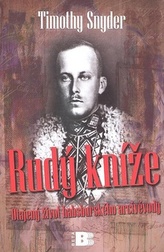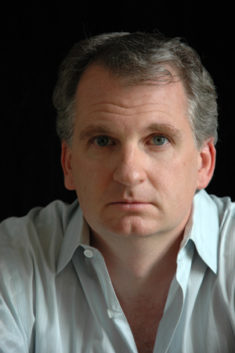

A New York Times bestseller and a book of the year according to The Atlantic, The Independent, The Financial Times, the Telegraph, and the New Statesman, it has won twelve awards including the Emerson Prize in the Humanities, a Literature Award from the American Academy of Arts and Letters, the Leipzig Award for European Understanding, and the Hannah Arendt Prize in Political Thought. He is author also of Bloodlands: Europe Between Hitler and Stalin (2010), a history of Nazi and Soviet mass killing on the lands between Berlin and Moscow. His most recent book is Black Earth: The Holocaust as History and Warning, published in September 2015 by Crown Books. He has held fellowships in Paris, Vienna, and Warsaw, and an Academy Scholarship at Harvard. He received his doctorate from the University of Oxford in 1997, where he was a British Marshall Scholar.

Timothy Snyder is Housum Professor of History at Yale University and a permanent fellow at the Institute for Human Sciences. Played out in Europe's glittering capitals and bloody battlefields, in extravagant ski resorts and dank prison cells, The Red Prince captures an extraordinary moment in the history of Europe, in which the old order of the past was giving way to an undefined future-and in which everything, including identity itself, seemed up for grabs. When this dream collapsed he became, by turns, an ally of German imperialists, a notorious French lover, an angry Austrian monarchist, a calm opponent of Hitler, and a British spy against Stalin. Coming of age during the First World War, Wilhelm repudiated his family to fight alongside Ukrainian peasants in hopes that he would become their king. Snyder offers an indelible portrait of an aristocrat whose life personifies the wrenching upheavals of the first half of the twentieth century, as the rule of empire gave way to the new politics of nationalism. In this exhilarating narrative history, prize-winning historian Timothy D.

He spoke the Italian of his archduchess mother, the German of his archduke father, the English of his British royal friends, the Polish of the country his father wished to rule, and the Ukrainian of the land Wilhelm wished to rule himself. He could handle a saber, a pistol, a rudder, or a golf club he handled women by necessity and men for pleasure. Wilhelm Von Habsburg wore the uniform of the Austrian officer, the court regalia of a Habsburg archduke, the simple suit of a Parisian exile, the collar of the Order of the Golden Fleece, and, every so often, a dress.


 0 kommentar(er)
0 kommentar(er)
